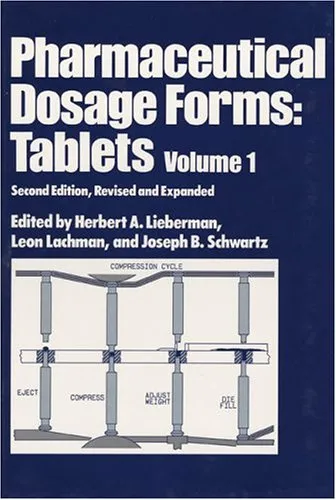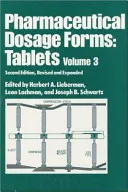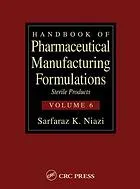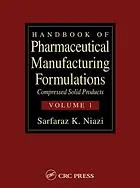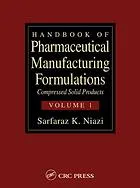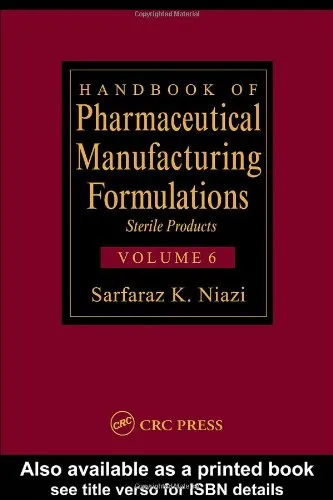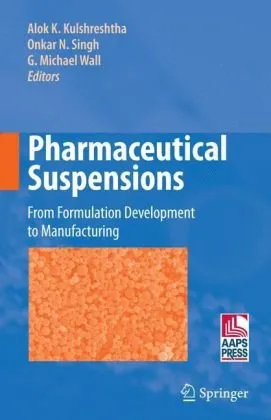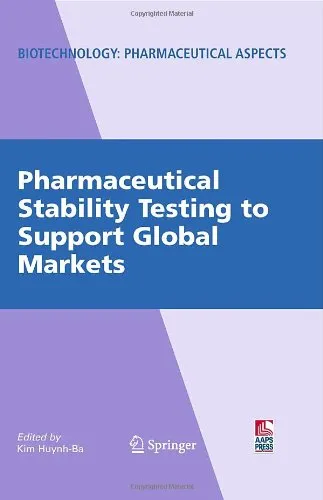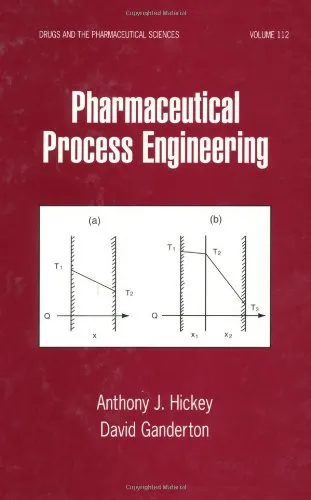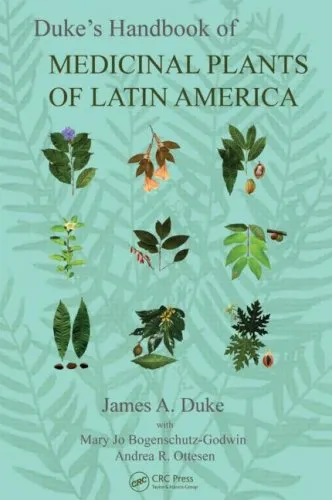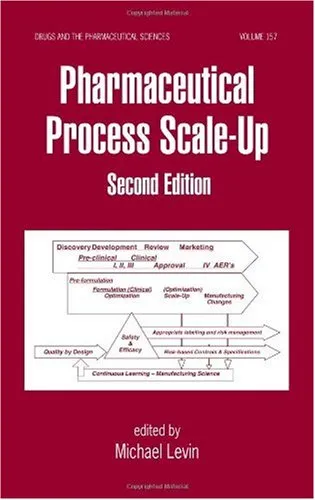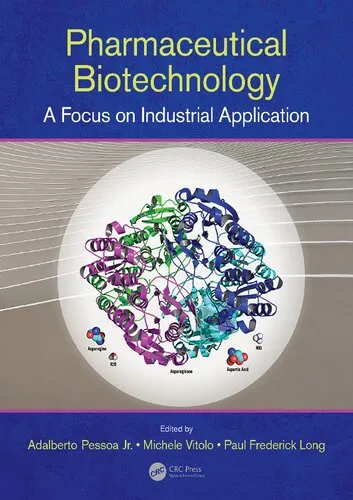Pharmaceutical Manufacturing Handbook Production and Processes
4.0
Reviews from our users

You Can Ask your questions from this book's AI after Login
Each download or ask from book AI costs 2 points. To earn more free points, please visit the Points Guide Page and complete some valuable actions.Related Refrences:
Introduction to the 'Pharmaceutical Manufacturing Handbook: Production and Processes'
The pharmaceutical industry is among the most complex, strictly regulated, and rapidly evolving sectors in the world. To help professionals, academics, and enthusiasts navigate this challenging field, the "Pharmaceutical Manufacturing Handbook: Production and Processes" serves as a comprehensive guide to this multifaceted industry. Authored by Shayne Cox Gad, the book is a definitive resource for understanding the intricate workings of pharmaceutical manufacturing, executed with precision and best practices.
Spanning an extensive range of topics, this handbook addresses every critical aspect of pharmaceutical production and its associated processes, including formulation development, materials science, manufacturing protocols, process scalability, regulatory compliance, and monitoring systems. This resource has been designed to meet the needs of a wide audience—from industry veterans seeking a detailed reference to beginners looking to build a strong foundational understanding of pharmaceutical manufacturing.
What makes this book incredibly valuable is the clarity with which technical details are presented, offering a balanced synthesis of authoritative insights and practical guidance. Now, let’s explore the key facets of this book and understand why it remains an indispensable guide in the field of pharmaceutical manufacturing.
Detailed Summary of the Book
The "Pharmaceutical Manufacturing Handbook: Production and Processes" is divided into several sections, each carefully curated to cover vital topics such as manufacturing strategies, regulatory challenges, and industry-best methodologies.
This book begins with an introduction to the fundamental principles of pharmaceutical production, offering a strong theoretical base before delving into the key applications. Sections address the challenges involved in scaling laboratory formulations into full-scale production, emphasizing precision and reproducibility. Furthermore, comprehensive chapters cover materials science—including excipients and drug ingredients—ensuring that readers understand the interaction between components that directly impact a product's safety and efficacy.
One of the book’s strengths is its focus on regulatory requirements and compliance, providing insights that ensure manufacturers navigate the stringent legal environment effectively. Special attention is given to Good Manufacturing Practices (GMP), validation protocols, risk management, and quality control strategies, allowing companies to meet international regulatory standards efficiently. With multidisciplinary discussions ranging from aseptic manufacturing and lyophilization to advanced process controls, the book provides a robust framework for problem-solving and innovation in pharmaceutical manufacturing.
This is not merely a manual but a dynamic tool filled with real-world examples, case studies, and contributions from industry experts. Whether addressing environmental considerations, contingency measures, or cost-efficiency in formulation development, the book equips its readers with best practices they can immediately apply.
Key Takeaways
Here are some of the most invaluable lessons readers can take away from this handbook:
- Comprehensive understanding of pharmaceutical manufacturing processes, from formulation development to final production.
- Expert guidance on ensuring compliance with Good Manufacturing Practices (GMP) and other global regulatory standards.
- Proven strategies for addressing and overcoming common production challenges, such as scalability and stability issues.
- Detailed focus on quality assurance, validation protocols, and risk management frameworks.
- Insights into advanced techniques, including continuous manufacturing, automation, and process analytical technology (PAT).
Famous Quotes from the Book
The "Pharmaceutical Manufacturing Handbook" offers profound insights, many of which resonate deeply with professionals in the industry. Here are some notable quotes:
“Pharmaceutical manufacturing is not just a science of producing compounds; it is an art of precision, dedication, and strict adherence to quality.”
“Innovation in pharmaceutical production is a constant pursuit of excellence, where every process must align with the ultimate goal: ensuring patient safety.”
“Regulatory guidelines are not obstacles but frameworks that guide the industry toward ethical, sustainable, and reliable pharmaceutical practices.”
Why This Book Matters
Pharmaceutical manufacturing is a critical industry that directly affects lives across the globe. This book steps into that responsibility by delivering its readers the required tools, knowledge, and strategies to excel in the field. Here’s why this book truly matters:
This handbook offers not only theoretical knowledge but actionable guidance for overcoming challenges in pharmaceutical production—such as adapting to new technologies or ensuring compliance with increasingly stringent regulatory requirements. It serves as a reference for professionals, acting as a bridge between academic understanding and practical application.
The pharmaceutical industry is vital to global healthcare, developing the medications that save lives every day. By focusing on quality, consistency, safety, and efficiency, this book contributes to a higher standard of excellence across the industry. It empowers manufacturers to produce safe and effective products at scale, which are essential to improving worldwide healthcare outcomes.
For anyone working in or studying pharmaceutical production, this handbook represents a key resource that aligns with the best practices and cutting-edge advancements in the field. It stands not only as a testament to the complex nature of pharmaceutical manufacturing but also as an accessible and reliable source of solutions to those complexities.
Free Direct Download
You Can Download this book after Login
Accessing books through legal platforms and public libraries not only supports the rights of authors and publishers but also contributes to the sustainability of reading culture. Before downloading, please take a moment to consider these options.
Find this book on other platforms:
WorldCat helps you find books in libraries worldwide.
See ratings, reviews, and discussions on Goodreads.
Find and buy rare or used books on AbeBooks.
1665
بازدید4.0
امتیاز0
نظر98%
رضایتReviews:
4.0
Based on 0 users review
Questions & Answers
Ask questions about this book or help others by answering
No questions yet. Be the first to ask!

